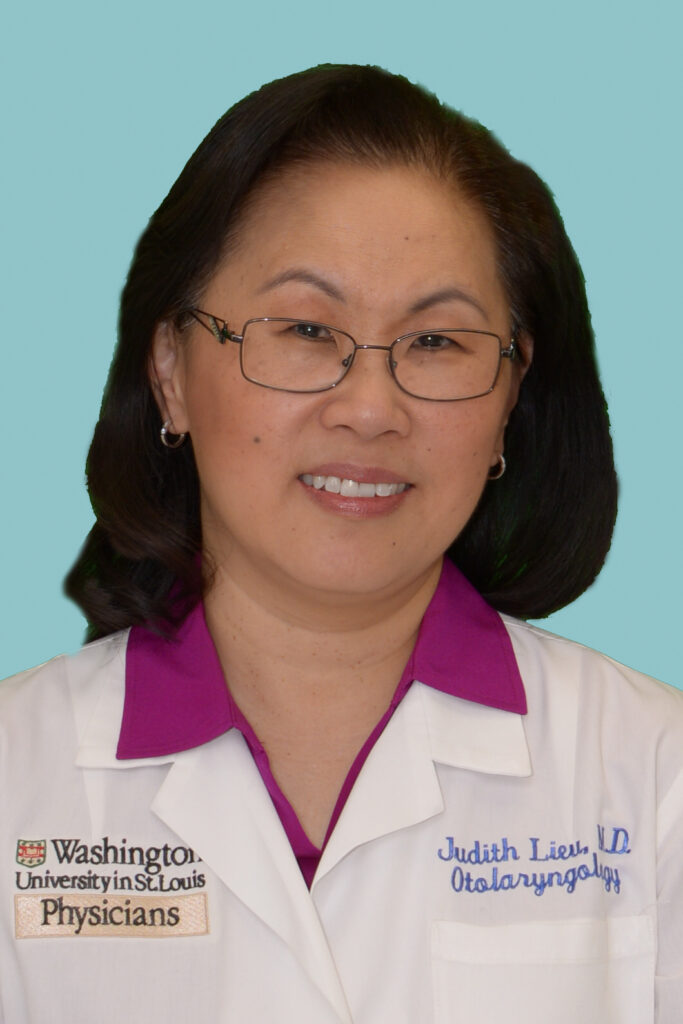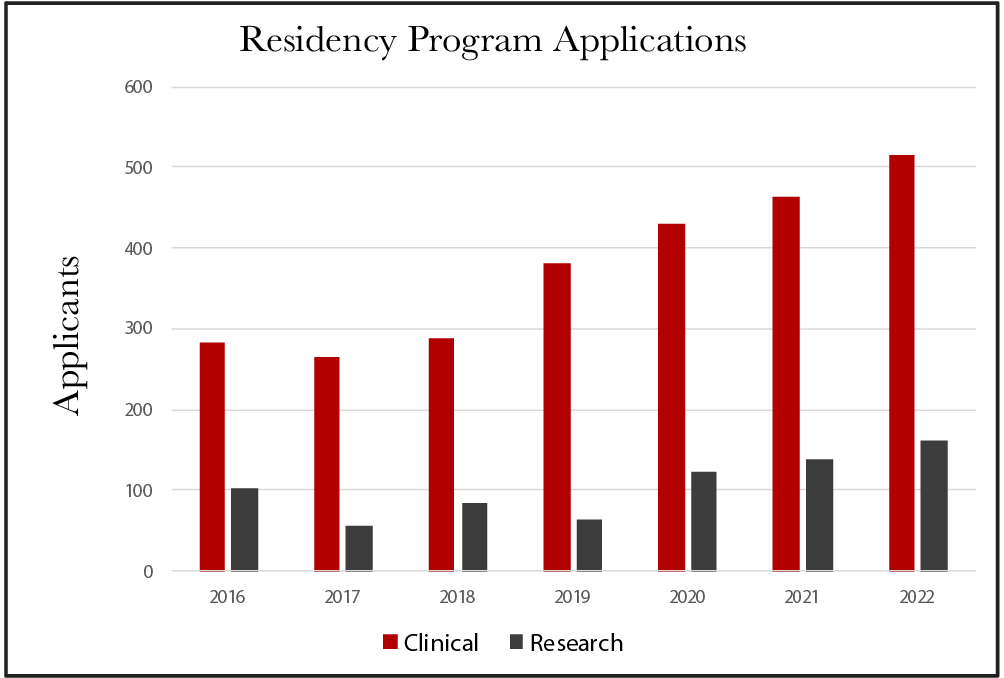The residency program in the Department of Otolaryngology at Washington University reached an all-time high of 516 applicants this year. The increase highlights an acceleration in the past few years of a subtle trend that has been ongoing for two decades.
Residency Program Director Judith Lieu, MD, acknowledged there may be many reasons for the increase, but chief among them is competition for the limited number of residency spots – residents are applying to more programs to ensure they match somewhere. Just this year, the department responded by increasing – from 60 to 72 – the number of interviews granted.

According to data provided by the American Association of Medical Colleges, across all medical specialties this application cycle, MD applicants submitted an average of 68 applications. That number is 80 or higher for candidates of the more competitive specialties like orthopedic surgery, urology and otolaryngology.
Lieu explained the increase in applicants is partly a result of the DO (osteopathic) programs being merged with MD programs under the Accreditation Council for Graduate Medical Education. Not all of the former DO programs were accredited, resulting in a net decrease of spots across the country and an increase in the total number of applicants.
“A large number of very qualified applicants from last year didn’t match, despite high Step I medical licensing exam scores, American Osteopathic Association status, or large number of interviews,” said Lieu. “Many of those re-applied this year, which ballooned our applicant pool further.”
According to Lieu, the selection of which candidates to interview is one of the most demanding and important tasks she undertakes each year. Applicant selection is a huge endeavor for the whole department. She explained the process as follows:

- Six faculty members (Drs. Andrew Bluher, Joseph Bradley, Greg Branham, Jacques Herzog, Maithilee Menezes, and Matthew Shew) each reviewed 50 applications using a screening rubric that has been used the past several years. Lieu and Associate Program Director Jason Rich, MD, reviewed the remaining 200 clinical track applications. The scoring rubric works toward a holistic review of every applicant, looking beyond Step I scores, grades, and ranks. Jay Piccirillo, MD, director of the T32 physician-scientist training program, reviewed all research track applicants, which numbered 162 this year.
- Selection of which candidates to interview is based not only on a faculty screening score, but also other types of preference signals, statements within the personal statement that addressed WashU or academic aspirations, couples matching, family or educational ties to St. Louis, the number of students applied from each medical school, advocacy from mentors and faculty, and finally an attempt to infer a team/collegial mindset that meshes with our program’s culture.
- In December and January, 17 faculty and chief residents will be interviewing applicants over six virtual half-day sessions, and they will be ranked during a meeting in February where residents will also have the opportunity to offer their impressions of the candidates.
“The enormous effort reflects the importance of choosing five incoming residents who will be working closely with us for five to seven years and forever remain an extension and reflection of our department after they graduate,” Lieu said. “I cannot express strongly enough the gratitude I feel for all the efforts that have enabled this process to work so well.”
